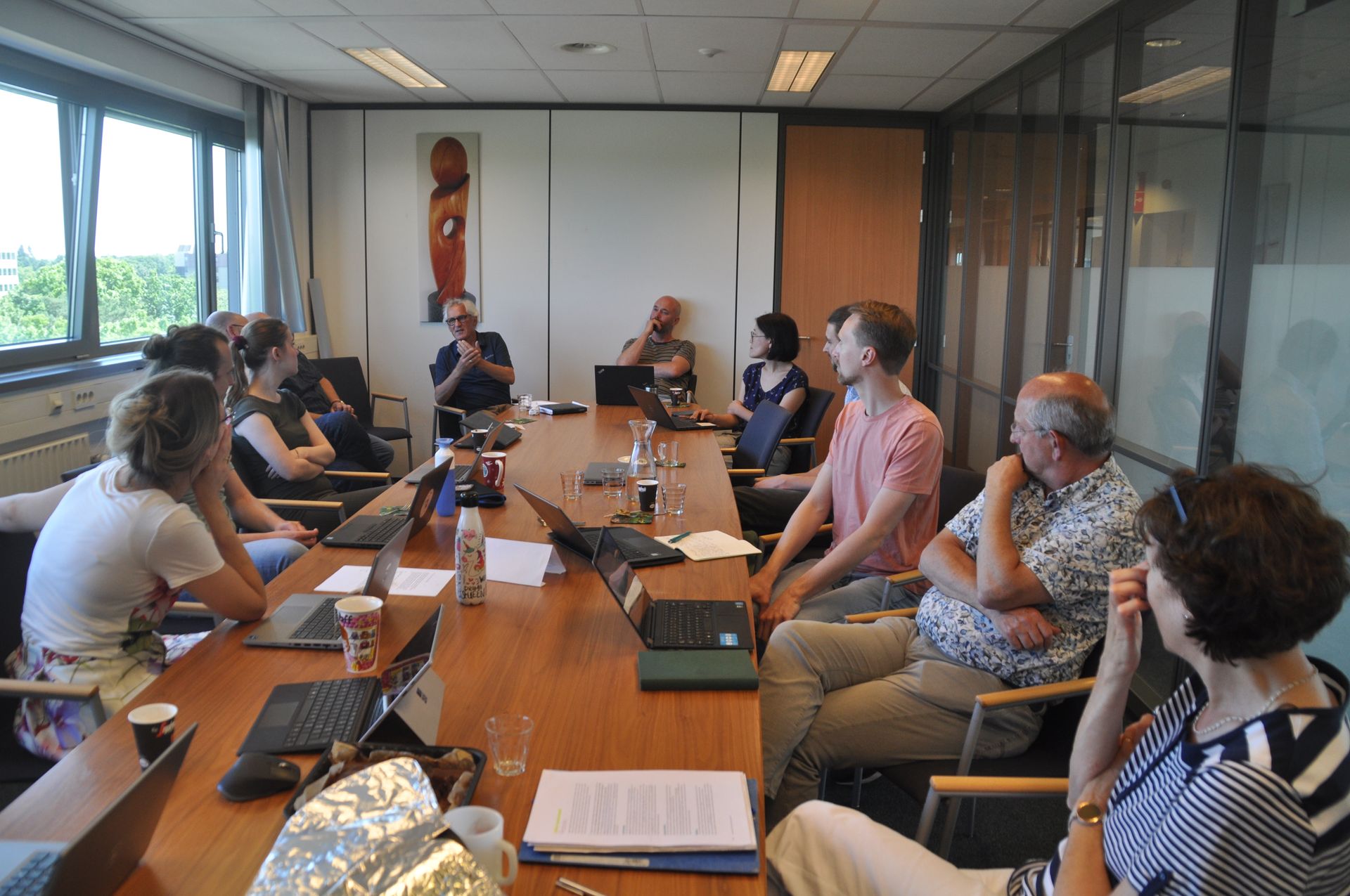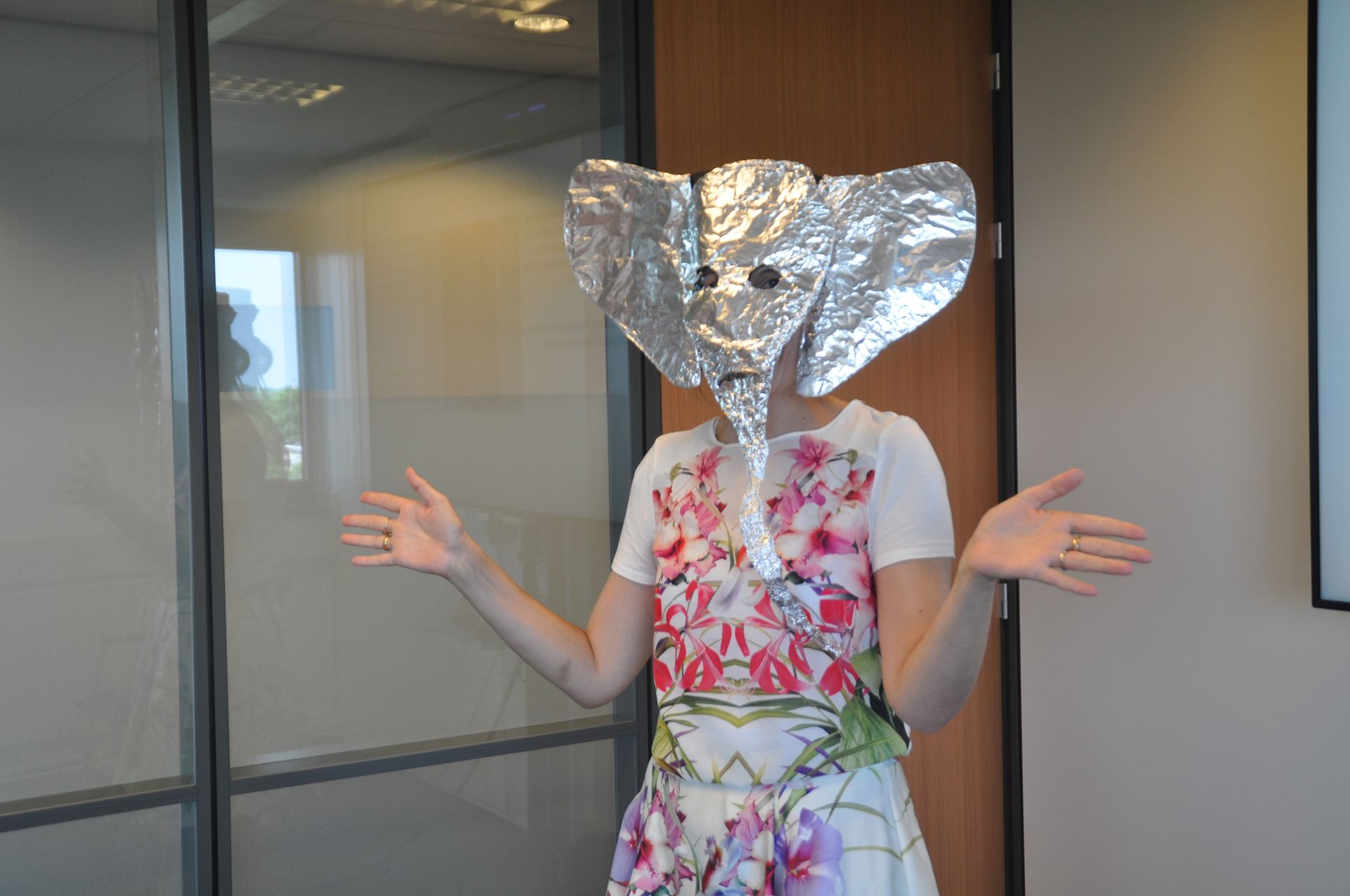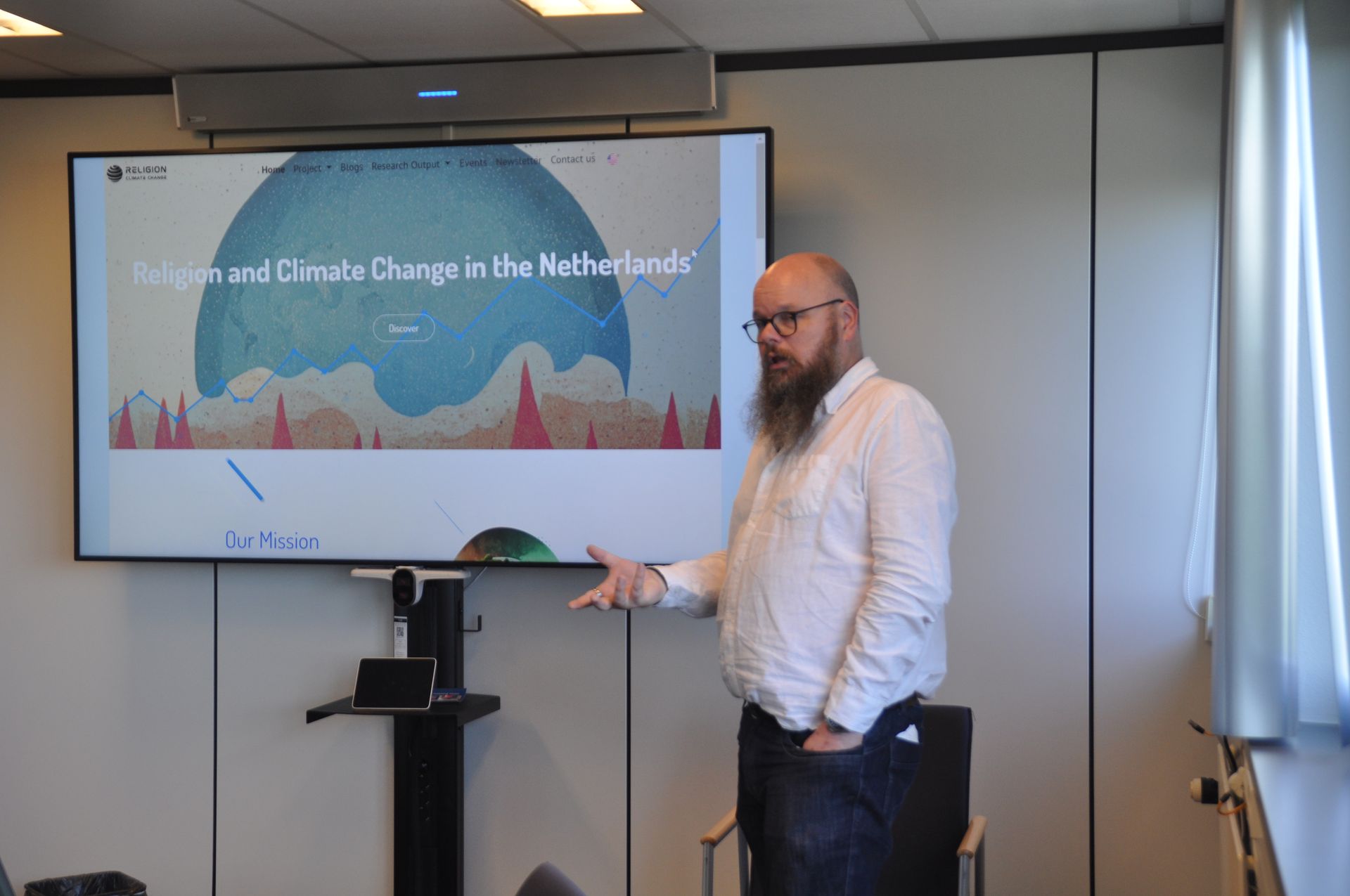Meeting ‘Religion and Climate Change’ 13 June 2023
On 13 June 2023 the NWO research group ‘Religion and Climate Change’ organized a first meeting for colleagues at Tilburg University. The four researchers involved presented their project and some preliminary findings of their research. Ten members from different schools of Tilburg University attended the meeting (including the Tilburg School of Catholic Theology, Tilburg School of Humanities and Digital Sciences, Tilburg School of Behavioral Sciences, and a representative of the Academic Collaborative Center Climate & Energy of Tilburg University).
Meeting ‘Religion and Climate Change’ organized at Tilburg University, 13 June 2023. Picture taken by Ömer Gürlesin (Tilburg 13 June 2023).
The project leader, prof. dr. Caroline Vander Stichele, opened the meeting welcoming the attendees. She provided a brief introduction to the project. The project ‘Religion and Climate Change’ is funded by NWO and started in March 2023. Based on the research question ‘How do religious vocabularies impact climate change discourse, understood as the way in which climate change is presented, interpreted and discussed across modern audio-visual media in the Netherlands’, the focus of the research is to investigate religious vocabularies in the climate change discourse. In the first stage of the project, the focus is on the Netherlands, resulting in a national symposium on June 7, 2024 (with conference proceedings). In the second stage, a comparison of data from the Netherlands with international findings will take place. The results thereof will be presented at an international conference on 10 October 2025. She also mentioned that the first efforts of the research have resulted in a comprehensive list of climate groups, a website of the project, and a newsletter.
Ömer Gürlesin - who works as a postdoctoral researcher in the project - presented the methodological aspects of the project. He explained how the research project uses a comprehensive multi-method approach combining qualitative and quantitative methods and critical discourse analysis. In the current stage, qualitative data is generated by the group's researchers doing participant observation and conducting interviews. In addition to this field research, the project aims to analyze religious vocabularies on social media accounts and websites. For this, API’s and webscraping tools will be used to collect quantitative data. He also mentions how triangulation is used in this project and explains how the research also benefits from the diverse backgrounds of the team members. The presentation of Ömer was followed by a discussion on the problem of researcher objectivity (especially when it involves being a member of a climate activist group) and on the question how to overcome the fact that climate sceptics seems to be more prominent on social media than climate concerned groups. Also, in response to the presentations, the group stressed that they aim to contribute to the academic discourse on religion and climate change and to society at large by improving communication about climate change.
Postdoctoral researcher Deborah de Koning presents her findings on eco-rituality and explains this by wearing a mask that she used in The Council of All Beings to explain intergenerational and interspecies connection within eco-rituals. Picture taken by Ömer Gürlesin (Tilburg 13 June 2023).
Deborah de Koning – the other postdoctoral researcher of the project – presented some initial findings of her fieldwork. She provided several examples of eco-rituals: a particular set of meaning making practices of people in response to the climate crisis (working definition). In addition to an Ash Wednesday Celebration on the railway track of a coal transportation train – in which embodiment and emplacement become very relevant – she shows the elephant mask that she created for a communal ritual that she attended, The Council of All Beings. This ritual was invented by Joana Macy: an environmental activist, author, and scholar of Buddhism, general systems theory, and deep ecology. During the ritual participants step aside from their human identity and speak on behalf of another life-form. This ritual shows the renewed meaning of communitas in the climate crisis which aims to include other species and is intergenerational (people are also provided the opportunity to represent extinct species). Her examples of a pastiche of a procession funeral for an extinct butterfly and the Eucharist in the performance ‘Remember Us’ resulted in a discussion of the interrelationship between performance and rituals. By looking at practices De Koning aims to show how eco-rituals provide (new) ways of belonging that are in line with and provide a critical response to secularization and individualization in the Netherlands.
The video game Brink (2011) served as an example of how religious vocabularies and aesthetics are still present in videogames, films, and series despite the continuous process of secularization. The trailer of Brink explains how a self-sustainable human-made island (called the Ark) was built 40 years ago. When the rising waters flood the entire earth, only the Ark remains as a place of refuge, attracting a massive amount of climate refugees, threatening the continuation of the Ark. The Ark’s original inhabitants, the Founders, and their security forces control the access to the scarce resources (water, food, medicine). The refugees are forced to live in the slums on the brink of the Ark. They form a ‘resistance’, who wants to have full access to the Ark's resources. The player has to side with either the security forces or the resistance. In the end a half destroyed, burning Ark is what is left, independently of which side one has chosen.
Frank Bosman presents his analysis of the prevalence of religious vocabularies in the video game Brink (2011). Picture taken by Ömer Gürlesin (Tilburg 13 June 2023).
As Frank Bosman argued, the game creatively illustrates the interconnectedness of two major crises in our times: the ecological crisis and the migrant crisis. It also serves as an example of intergenerational guilt. This topic is connected to religious (especially Christian) vocabularies. The game more specifically appropriates the well-known Biblical story of Noach and the Ark to suggests intergenerational responsibility or sinfulness regarding the ecological and refugee crisis. In response to this presentation, the hyper-masculine character of the game was noted. A result of the discussion that followed was that eco-feminism is a research topic worth taking into consideration.
At the end of the meeting, Ömer Gürlesin presented the website of the research project www.religionclimate.org People were invited to subscribe to the newsletter of the project and contribute to the website by writing a guest blog. An impression of some of the first findings of the research project can also be found on the website of VOLZIN https://volzin.nu/tilburgs-onderzoek-laat-zien-hoe-religies-betekenis-krijgen-in-de-klimaatcrisis/




